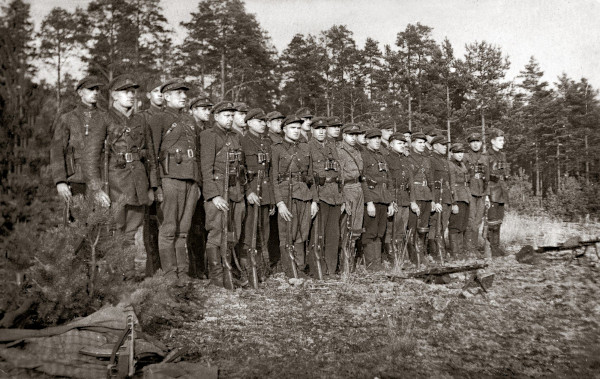The European Court of Human Rights (ECHR) has dismissed the complaint of former KGB officer Stanislovas Drėlingas, who was found guilty of genocide for his part in the operation to detain Adolfas Ramanauskas-Vanagas, a commander of the Lithuanian partisans who fought against Soviet rule. The ECHR concurred with the Supreme Court of Lithuania’s determination that the systematic destruction of Lithuanian partisans by Soviet occupiers can be considered genocide of the Lithuanian people. This was reported by the Lithuanian publication “DELFI.”
The judges recognized that Soviet repressions were aimed at affecting the demographic situation of the Lithuanian people, and that the partisans and their liaisons “played an essential role in preserving the national identity, culture, and national consciousness.”
The court emphasized that although Drėlingas did not personally make the decision to execute Ramanauskas-Vanagas, “even a common soldier cannot blindly and unconditionally follow laws that brutally violate internationally recognized human rights, especially the right to life.”
Five judges of the Strasbourg court voted for this decision, while two voted against.
Drėlingas and his lawyers had argued that the partisan movement should be assessed as the activity of a political group, and therefore, actions against the partisans cannot be considered genocide.
In the post-war period, at least 50,000 people took part in the armed resistance in Lithuania, the publication reports.
Drėlingas, born in 1931, was convicted for his participation in a covert operation to detain Ramanauskas-Vanagas in Kaunas in October 1956. Taking into account his poor health and secondary role in this operation, the Supreme Court of Lithuania reduced his five-year sentence—Drėlingas effectively served five months and six days in prison.
Adolfas Ramanauskas-Vanagas led the partisans of Dzūkija (southern and southeastern Lithuania) after World War II. In 1949, along with other partisan commanders, he signed the Declaration of the Movement of the Struggle for Freedom of Lithuania.
The armed struggle for the restoration of Lithuanian independence lasted from 1944 to 1953. Ramanauskas-Vanagas was arrested in 1956, subjected to brutal torture, and executed the following year.

© Museum of Genocide Victims